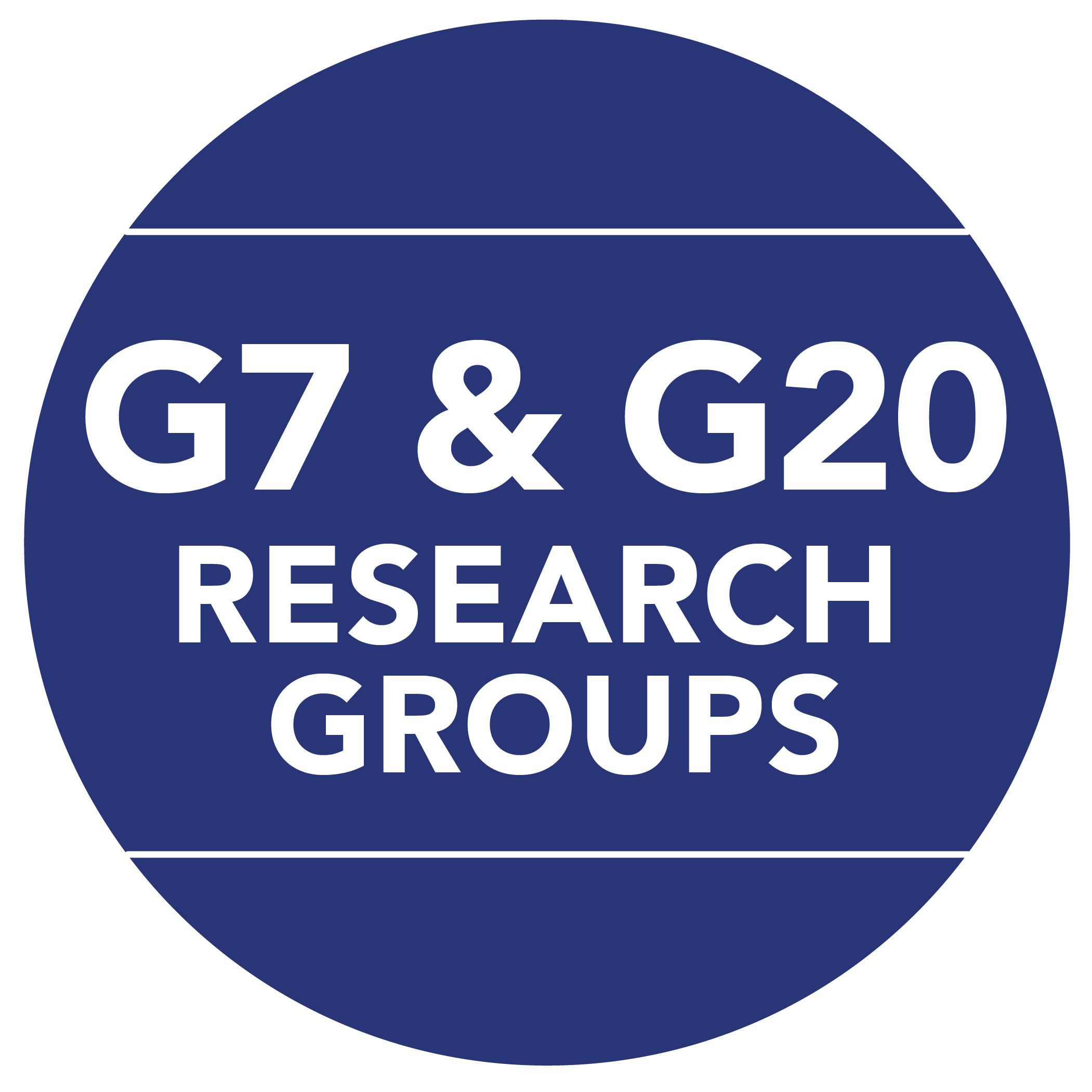

 |
 |
|
G7 Environmental Ministers Advance Leaders' Oceans Governance
Duja Muhanna, Research Analyst, G7 Research Group
September 20, 2018
From September 19 to 21, 2018, the G7 environment, energy and oceans ministers gathered in Halifax, Nova Scotia, under Canada's G7 presidency, to discuss the theme of "working together on climate change, oceans and clean energy." High on the agenda is the health of the world's oceans and its central components of plastic waste and marine litter, sustainable fisheries, and coastal resilience. The G7 ministerial meeting is expected to foster collaboration on important oceans issues and foster strategies that will help make the world's oceans cleaner, safer and healthier.
Between 1975 and 2017, the G7 leaders made 89 collective, politically binding, future-oriented oceans commitments. At the 2018 Charlevoix Summit several more oceans commitments were made, particularly within the G7 Oceans Plastics Charter. Eleven component subjects can be identified within the G7's oceans commitments: maritime security, environment, maritime safety, fishing, monitoring, climate change, energy, international cooperation, disaster risk management, self-accountability and plastics pollution.
The G7 made its first oceans commitment at the 1986 Tokyo Summit. It was on maritime security. The first environment-related oceans commitment was at Venice in 1987. Since then, the G7 has made 89 commitments on oceans. Of these, half were dedicated to protecting the oceans, with just four connecting this to climate change. The G7 was especially productive at its 2003 Evian Summit where it made 31 oceans commitments. This was followed by the 2015 Elmau Summit with 10 and the 2004 Sea Island Summit with eight. In more recent years, the G7 made far fewer commitments. At Ise-Shima in 2016 the G7 made only four oceans commitments and at Taormina in 2017 only two were made.
G7 members complied with these 89 commitments at a level of 88%, based on the nine commitments assessed for compliance thus far. This is well above the G7 summit's average for compliance with all its commitments since its first summit in 1975. Compliance with the assessed oceans commitments was particularly strong for those made in 2003, where the three assessed commitments had average compliance of 93%.
By individual member, compliance with these 9 assessed commitments was led by the European Union at 100%, followed by Canada at 94%, France at 94%, the United Kingdom at 88%, Italy at 88%, United States at 88%, Germany at 86% and Japan at 79%.
At Charlevoix in 2018, G7 leaders endorsed the Charlevoix Blueprint for Healthy Oceans, Seas and Resilient Coastal Communities. The United States and Japan did not sign the Oceans Plastics Charter that was also produced at Charlevoix.
In the Charlevoix Blueprint, G7 leaders made commitments on the following issues:
At Halifax, the environment ministers advanced these commitments, as well as those in the Plastics Charter. Here, Canada's minister of environment and climate change, Catherine McKenna, focused on engaging industry to implement the Charter, which calls for businesses to take responsibility for production methods that eliminate waste.
 Duja Muhanna is a research analyst with the G7 Research Group. She graduated from the University of Toronto with an honours bachelor's degree in political science and history with a focus in international relations. Duja is also a certified protocol officer from the Protocol School of Washington. Duja joined the G7 Research Group in 2013 and has since served as a compliance analyst and lead analyst. She was a member of the field summit team at the G7 summit in Charlevoix in Canada in 2018. Her research interests include peace and security issues related to humanitarian law and human rights law, in addition to her other research interests in oceans pollution and combatting corruption related to illegal trade in wildlife.
Duja Muhanna is a research analyst with the G7 Research Group. She graduated from the University of Toronto with an honours bachelor's degree in political science and history with a focus in international relations. Duja is also a certified protocol officer from the Protocol School of Washington. Duja joined the G7 Research Group in 2013 and has since served as a compliance analyst and lead analyst. She was a member of the field summit team at the G7 summit in Charlevoix in Canada in 2018. Her research interests include peace and security issues related to humanitarian law and human rights law, in addition to her other research interests in oceans pollution and combatting corruption related to illegal trade in wildlife.
|
This Information System is provided by the University of Toronto Library |
All contents copyright © 2024. University of Toronto unless otherwise stated. All rights reserved.